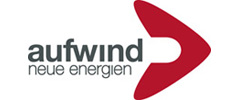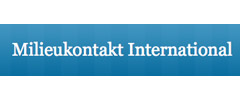WECF at the Rotterdam Convention meeting in Rome
Conflict: a solitary endosulfan producing state – India – tries to block progress
24.03.2009 |WECF Press Release
Compromised: Mr Pandey the delegate from India (centre) having lunch with the spokesman from the Indian Chemical Council (lower left), at COP4 of Rotterdam Convention 2008. Copyright: ROCA.
The Rotterdam Convention helps countries to protect their borders and health of their people, through an internationally legally binding requirement for information exchange about import or export of hazardous chemicals.
Since Monday the Chemical Review Committee of the Rotterdam Convention has been considering information on the banning of endosulfan by 9 West African countries - Burkina Faso, Cape Verde, Gambia, Mali, Mauritius, Niger and Senegal.
These countries banned endosulfan because of the terrible health effects - many cotton farmers have died after using the highly toxic chemical – and environmental contamination.
All members of the committee, except one endosulfan producing country, India, agree that endosulfan should be listed under Annex 3 of the Rotterdam Convention.
India is the world’s largest producer of endosulfan and is steadfast in its determination to undermine all attempts at global control of this highly toxic and persistent pesticide.
The delegate from India, Dr Pandey, attempted first to throw legal hurdles in the way, and then to blame the farmers in Africa for getting sick, because they do not have access to or cannot afford to buy protective equipment to shield themselves against the chemical.
Dr Pandey has stated that no-one has suffered health effects from exposure to endosulfan in India – in flagrant disregard for the people in Kerala suffering the horrific effects of 20 years of aerial spraying of cashew nut plantations. His comment brought gasps of disbelief from fellow committee members who are very aware of the suffering in India.
“We urge the Committee to do all that is in its power to prevent the shameful political domineering of one county from preventing the chemical going through for listing under the Convention”, said Dr Meriel Watts of Pesticide Action Network Asia and the Pacific. “It is an outrage that one country which manufactures endosulfan, heedless of the problems the chemical has so clearly caused in 9 African nations, should be able to prevent those countries from having the simple protection of the Prior Informed Consent procedure, from proposed shipments of a substance they don’t want.”
“India’s behaviour at International Conventions such as the Rotterdam and Stockholm Conventions is bringing the country into international disrepute”, says Madhumita Dutta, of the NGO Corporate Accountability Desk in India.
A lot of delegates are quite upset that India is constantly blocking the Rotterdam Convention and the Stockholm Convention. At last year’s meeting of the Review Committee of the Stockholm Convention (POPRC) the chair even warned Dr Pandey that he would report him to the Indian government for his obstructive behaviour.
“The convention should not be compromised by countries which have a conflict of interest, such as the case of India; the Indian government owns a big endosulfan manufacturing factory, and is using the consensus procedures of the Convention to hold the world to ransom" says Alexandra Caterbow from WECF.
For Information contact:
PAN AP: merielwatts@xtra.co.nz
ROCA / WECF: alexandra.caterbow@wecf.eu, mobile: +49 179 5244994
CAD: Madhumita Dutta, India, madhu.dutta@gmail.com, mobile: +91 9444390240
 .
.


































